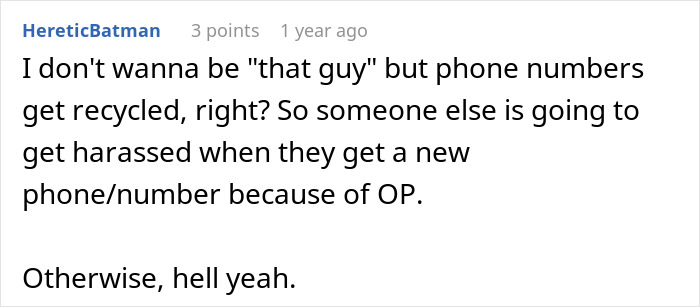When it comes to family, there’s always a chance for some drama, and stepfamilies are no exception. Things can get especially messy when stepparents cross boundaries or stir up unnecessary conflict.
One person shared their story of how their stepmother’s controlling behavior cut them off from their late father during his final days. They were even excluded from his funeral. Hurt and angered by her actions, the author sought a form of petty revenge by signing her up for endless spam emails and offers. Keep reading to find out how this story of betrayal and creative justice played out.
Stepfamilies can be positive or negative experiences, depending on how stepparents handle their roles

Image credits: Pavel Danilyuk/Pexels (not the actual photo)
A person shared how they decided to seek revenge after being excluded from their father’s life and funeral by their stepmother
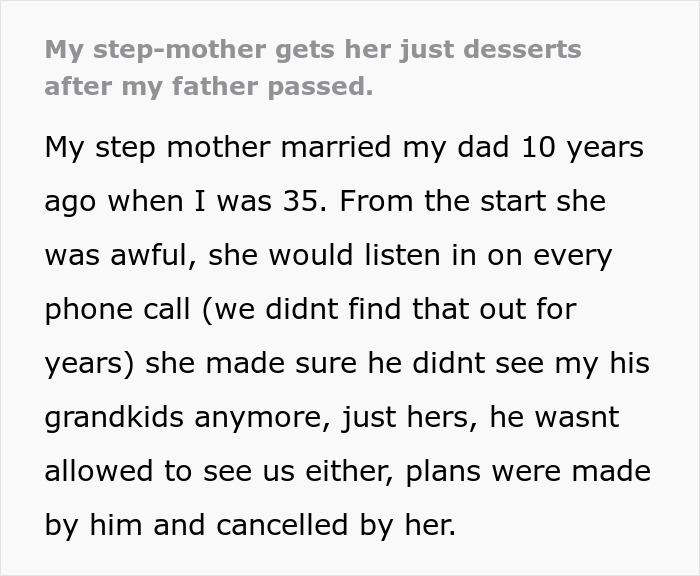
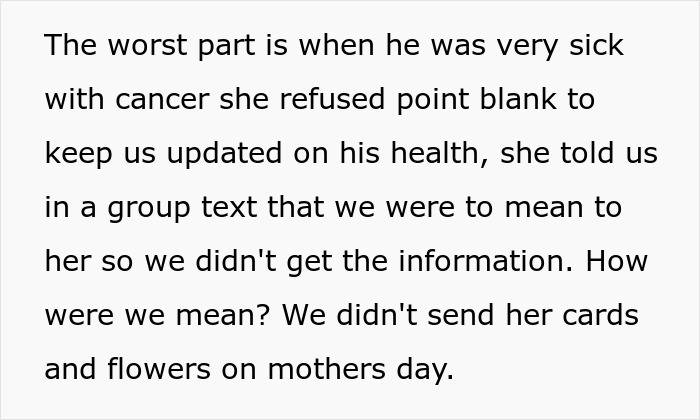




Image credits: Timur Weber/Pexels (not the actual photo)



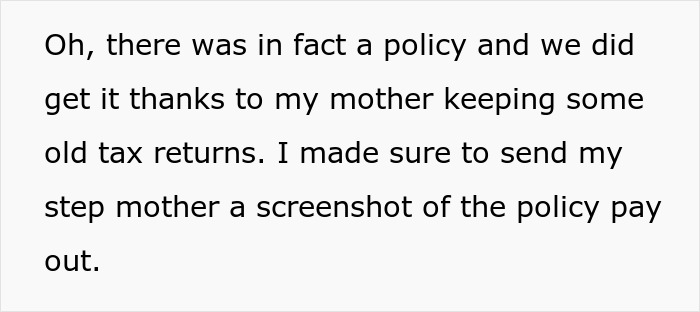
Image credits: Tinycowz
The author later shared additional details about the successful policy payout
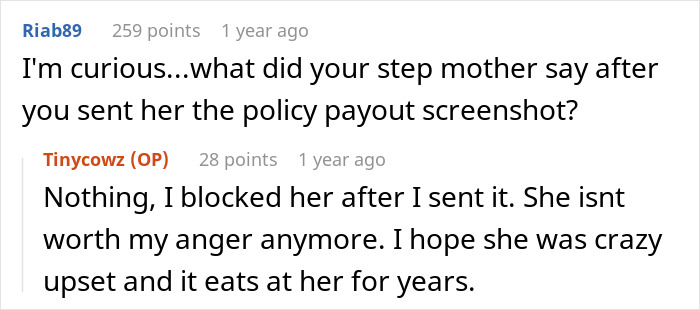
Spam messages can be incredibly frustrating and often make daily life more challenging

Image credits: Tim Gouw/Pexels (not the actual image)
Spam emails are an unavoidable part of life for anyone with an inbox. They’re everywhere, clogging up our email folders and often leaving us rolling our eyes in frustration. In fact, as of December 2023, spam emails made up a whopping 46.8% of all email traffic globally.
The United States is a top contributor to this flood of unwanted emails, sending about 8.61 billion spam emails every single day. Other countries like China and Russia aren’t far behind, proving that spam truly knows no borders.
Not all spam is created equal, though. Around 36% of spam emails are marketing-related, advertising everything from “miracle” weight-loss pills to questionable investment opportunities. While these might just seem annoying, the real danger comes when spam takes the form of phishing scams.
Phishing attacks are where things get serious. These emails are designed to trick you into giving up sensitive information like your passwords or credit card details. In 2021 alone, 85% of organizations reported being targeted by phishing. For individuals, falling for one of these scams can mean financial loss or even identity theft.
Spam emails often trace back to one major issue: the sale of personal data. Data brokers collect information about you from public records, online activity, and even social media, then sell it to marketers and other third parties. The result? Your inbox gets flooded with unwanted offers and shady schemes.
It’s crucial to be mindful of where we register our personal information to avoid unnecessary spam

Image credits: Christina Morillo/Pexels (not the actual photo)
The data-broker industry is massive, worth billions of dollars. These companies build detailed profiles of individuals, including names, addresses, income levels, and browsing habits, and sell them to businesses looking to target you with their products. The problem is, most of us have no idea this is even happening.
So, what can you do? Start by being cautious about where you share your email address. Avoid signing up for unnecessary newsletters or offers, use email filters to block spam, and never click on links in emails from unknown senders. If you’re worried about your data being sold, look into privacy tools or services that can help you manage how your information is shared.
At the end of the day, spam emails are an annoying yet inevitable part of modern life. But in this particular case, the author turned them into a tool for revenge by signing their stepmother up for a deluge of spam offers, marketing calls, and endless subscriptions. It’s certainly a creative and petty way to get back at someone!
What are your thoughts on this incident? Is it a justifiable act of revenge or a step too far? Let us know how you’d handle a similar situation!
Many people online applauded the author’s petty revenge, calling it satisfying and well-deserved





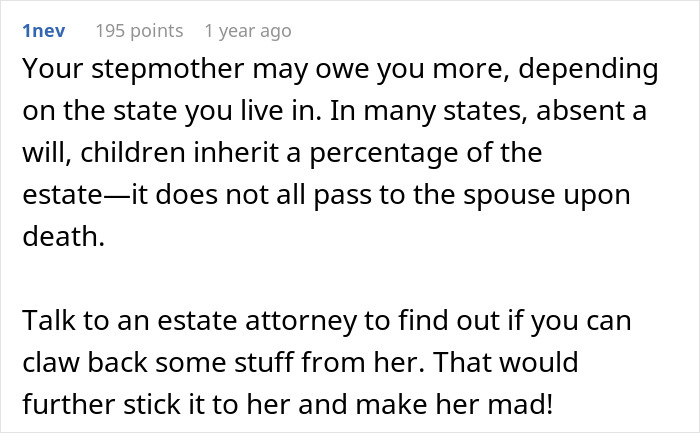



Others criticized the move, arguing that the author was being inconsiderate of how it affected others involved

